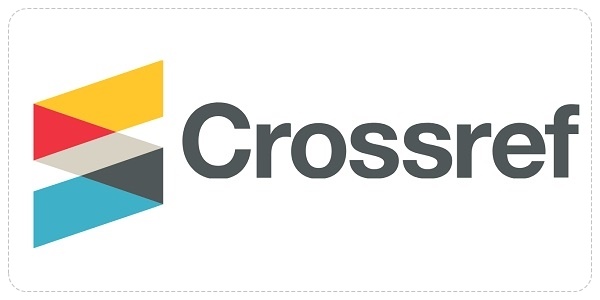Needs of Competencies in Financial Literacy for Youth with Intellectual Disabilities
Abstract
Keywords
Full Text:
PDFReferences
Ali, M. (2014). Memahami riset dan perilaku sosial. Jakarta: PT Bumi Aksara.
Ali, M. (2019). Research methods in sustainability education. Bandung: Universitas Pendidikan Indonesia (UPI) Press.
Asa, G. A., Fauk, N. K., Ward, P. R., Hawke, K., Crutzen, R., & Mwanri, L. (2021). Psychological, sociocultural and economic coping strategies of mothers or female caregivers of children with a disability in Belu district, Indonesia. PloS one, 16(5), e0251274.
Bonang, D. (2019). Pengaruh literasi keuangan terhadap perencanaan keuangan keluarga di Kota Mataram. J-EBIS (Jurnal Ekonomi dan Bisnis Islam), 4(2), 155-165.
Creswell, J. W. (2012). Educational research: Planning, conducting, and evaluating quantitative and qualitative research, 4th Ed. Boston, MA: Pearson Education, Inc.
Darcy, S., & Dowse, L. (2013). In search of a level playing field–the constraints and benefits of sport participation for people with intellectual disability. Disability & Society, 28(3), 393-407.
Gay, L. R. (1987). Student guide for educational research: Competencies for analysis and application. Merrill Publishing Company.
Goyal, K., & Kumar, S. (2021). Financial literacy: A systematic review and bibliometric analysis. International Journal of Consumer Studies, 45(1), 80-105.
Hanifah, N. (2014). Perbandingan tingkat kesukaran, daya pembeda butir soal dan reliabilitas tes bentuk pilihan ganda biasa dan pilihan ganda asosiasi mata pelajaran ekonomi. SOSIO e- KONS, 6(1), 41-55.
Hidajat, T. (2016). Literasi keuangan. STIE Bank BPD Jateng.
Hordacre A. L. (2016). Understanding everyday money skills for young people with disabilities. Adelaide: Australian Industrial Transformation Institute, Flinders University of South Australia. Retrieved from https://fac.flinders.edu.au/items/6c3098cb-25cb-47b0-87d2-32bff78f758a
International Labor Organization. (2017). Final report: Mapping persons with disabilities (PWD) in Indonesia labor market. Jakarta: International Labor Organization.
Jordan, R. R. (2010). English for academic purposes: A guide and resource book for teachers. Cambridge University Press.
Kementerian Pendidikan dan Kebudayaan. (2016). Media komunikasi dan inspirasi: Jendela pendidikan dan kebudayaan. Jakarta: Biro Komunikasi dan Layanan Masyarakat (BKLM).
Khalil, M. (2021). Financial citizenship as a broader democratic context of financial literacy. Citizenship, Social and Economics Education, 20(1), 3-16.
Kirby, M. (2017, April). Implicit assumptions in special education policy: Promoting full inclusion for students with learning disabilities. In Child & Youth Care Forum (Vol. 46, pp. 175-191). Springer US.
Laily, N. (2016). Pengaruh literasi keuangan terhadap perilaku mahasiswa dalam mengelola keuangan. Journal of Accounting and Business Education, 1(4), 1-17.
Malik, R. S. (2018). Educational challenges in 21st century and sustainable development. Journal of Sustainable Development Education and Research, 2(1), 9-20.
Money Advice Service. (2013). Helping young people with learning disabilities to understand money: Helping young people with learning disabilities to understand money (Adapted from on Your Own 2 Feet by Fairbridge). United Kingdom. Retrieved from https://arcuk.org.uk/wp-content/uploads/2013/05/Helping-young-people-with- learning-disabilities-to-understand-money.pdf
Morrison, G., Ross, S., & Kemp, J. (2019). Designing effective instruction. Hoboken, New Jersey: John Wiley & Sons.
Muir, K., Hamilton, M., Noone, J. H., Marjolin, A., Salignac, F., Saunders, P., & Australia, F. L. (2017). Exploring financial wellbeing in the Australian context. Report for financial literacy Australia. Centre for Social Impact & Social Policy Research Centre, University of New South Wales, Sydney. Retrieved From : https://www.arts.unsw.edu.au/sites/default/files/documents/exploring_financial_wellbeing_australian_context.pdf
Naga, R. H. A. (2002). Estimating the intergenerational correlation of incomes: An errors–in– variables framework. Economica, 69(273), 69-92.
Ningrum, V., Wang, W. C., Liao, H. E., Bakar, A., & Shih, Y. H. (2020). A special needs dentistry study of institutionalized individuals with intellectual disability in West Sumatra Indonesia. Scientific Reports, 10(1), 1-8.
Novieningtyas, A. (2018). Pentingnya edukasi literasi keuangan sejak dini. MANNERS, 1(2), 133-137.
Organization for Economic Co-operation and Development. (2015). Organization for Economic Co-operation and Development/International Network on Financial Education (OECD/INFE) core competencies framework on finansial literacy for youth. Retrieved from https://www.oecd.org/daf/fin/financial-education/core-competencies frameworks-for- financial-literacy.htm
Otoritas Jasa Keuangan. (2017). Press release: OJK announces higher financial literacy and inclusion indices. Retrieved from https://www.ojk.go.id/en/berita-dan-kegiatan/siaran- pers/Pages/Press-Release-OJK-Announces-Higher-Financial-Literacy-and-Inclusion- Indices-.aspx
Republik Indonesia. (2016). Peraturan Presiden Republik Indonesia Nomor 86 Tahun 2016 Tentang Strategi Nasional Keuangan Inklusif. Jakarta: Pemerintah Republik Indonesia.
Putra, N. & Hendarman. (2013). Metode riset campur sari: Konsep, strategi, dan aplikasi. Jakarta: Indeks.
Riany, Y. E., Cuskelly, M., & Meredith, P. (2016). Cultural beliefs about autism in Indonesia. International Journal of Disability, Development and Education, 63(6), 623-640.
Saraswati, A. M., & Nugroho, A. W. (2021). Perencanaan keuangan dan pengelolaan keuangan Generasi Z di Masa Pandemi Covid 19 melalui penguatan literasi keuangan. Warta LPM, 24(2), 309-318.
Singh, S., Roy, D., Sinha, K., Parveen, S., Sharma, G., & Joshi, G. (2020). Impact of COVID-19 and lockdown on mental health of children and adolescents: A narrative review with recommendations. Psychiatry research, 293, 113429.
Sugiyono. (2013). Metode penelitian kuantitatif, kualitatif dan R&D. Bandung: CV Alfabeta.
Susanti, A., & Ardyan, E. (2018). Tingkat pendidikan, literasi keuangan, dan perencanaan keuangan terhadap perilaku keuangan UMKM di Surakarta. Telaah Bisnis, 18(1), 45-56.
Susetyo, B. (2015). Prosedur penyusunan dan analisis tes: Untuk penelitian hasil belajar bidang kognitif. Bandung: Refika Aditama.
Watermeyer, R., Crick, T., Knight, C., & Goodall, J. (2021). COVID-19 and digital disruption in UK universities: Afflictions and affordances of emergency online migration. Higher education, 81, 623-641.
Yushita, A. N. (2017). Pentingnya literasi keuangan bagi pengelolaan keuangan pribadi. Nominal: Barometer Riset Akuntansi dan Manajemen, 6(1), 11-26.
DOI: https://doi.org/10.17509/pdgia.v20i3.49470
Refbacks
- There are currently no refbacks.
INDEXED BY

This work is licensed under a Creative Commons Attribution-ShareAlike 4.0 International License















